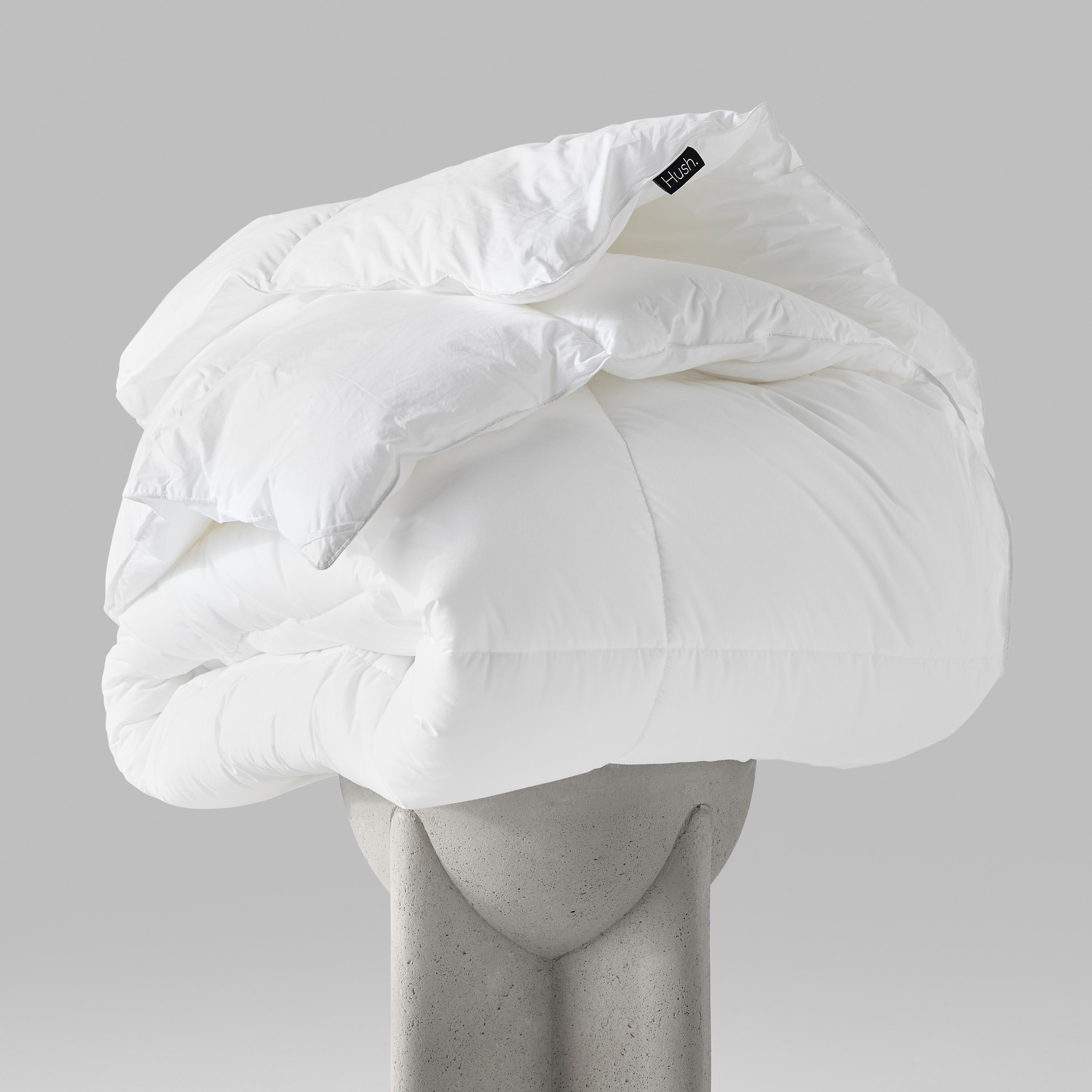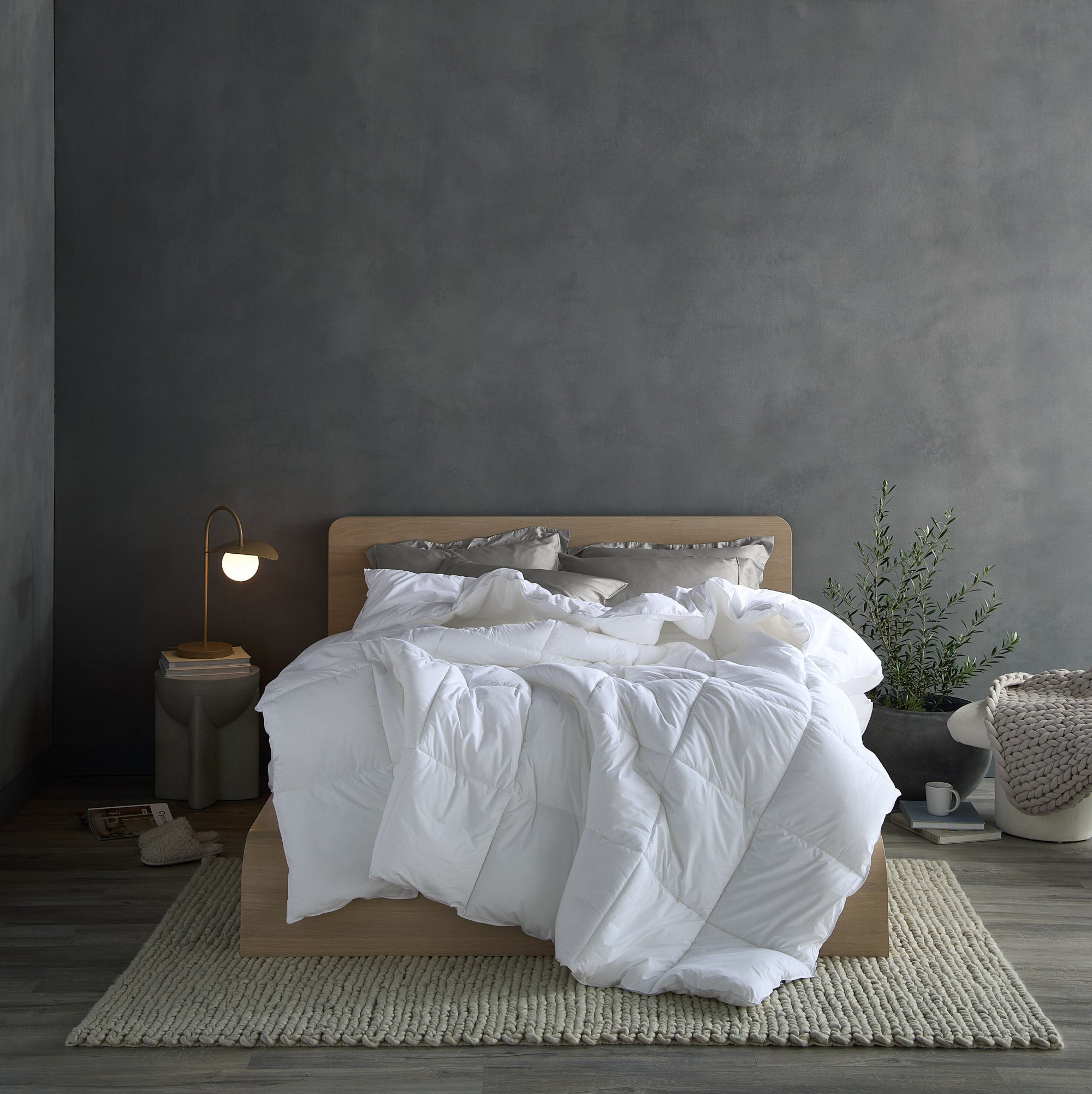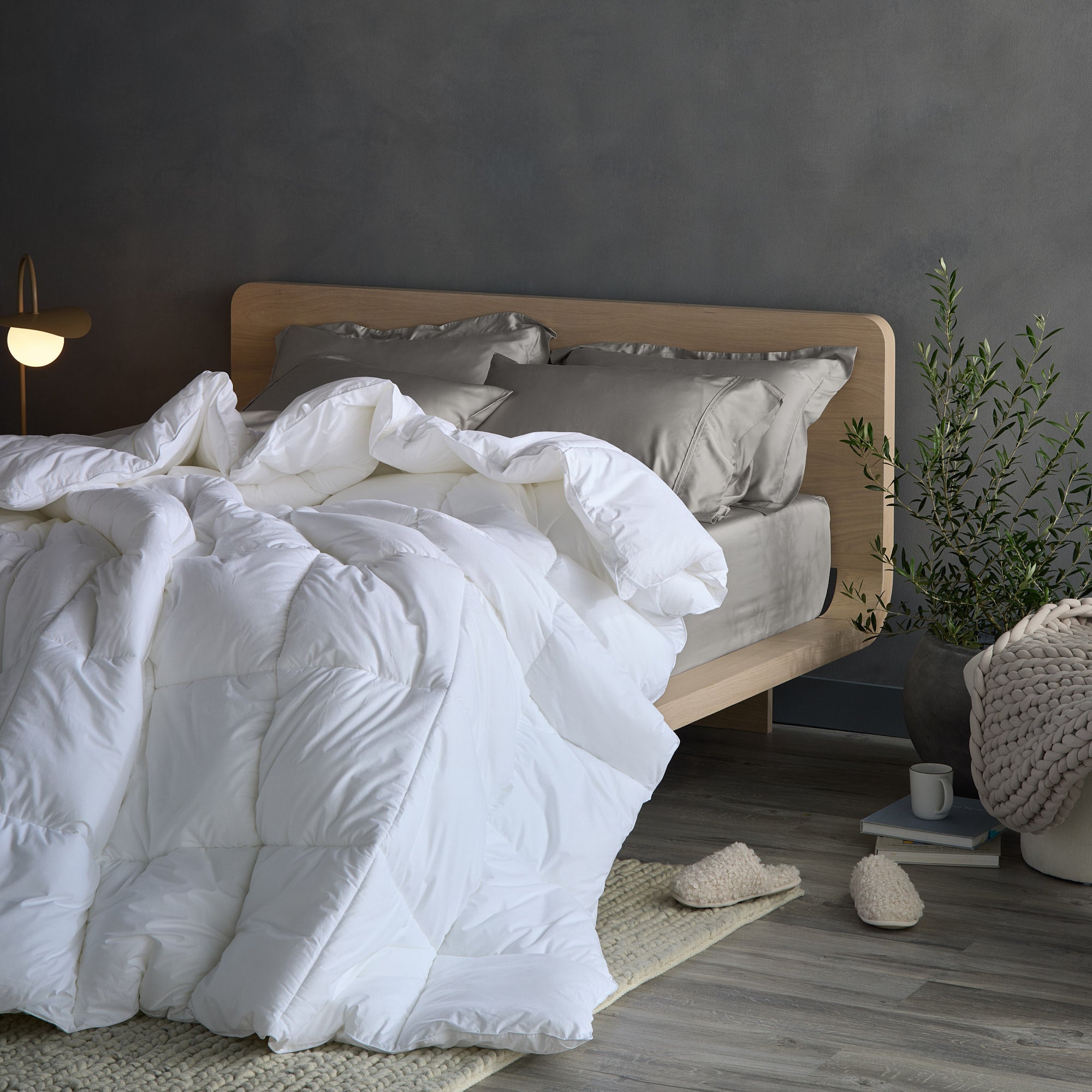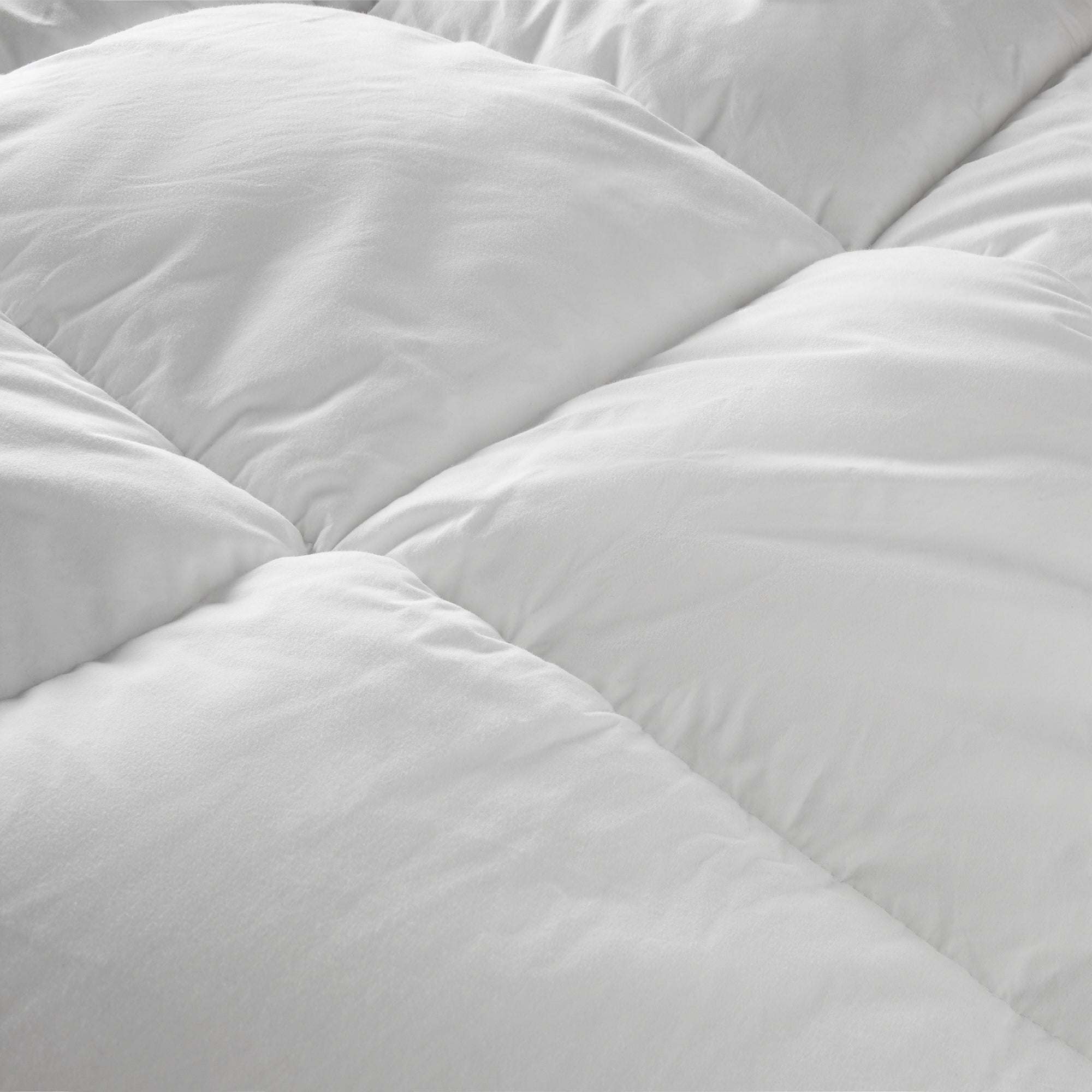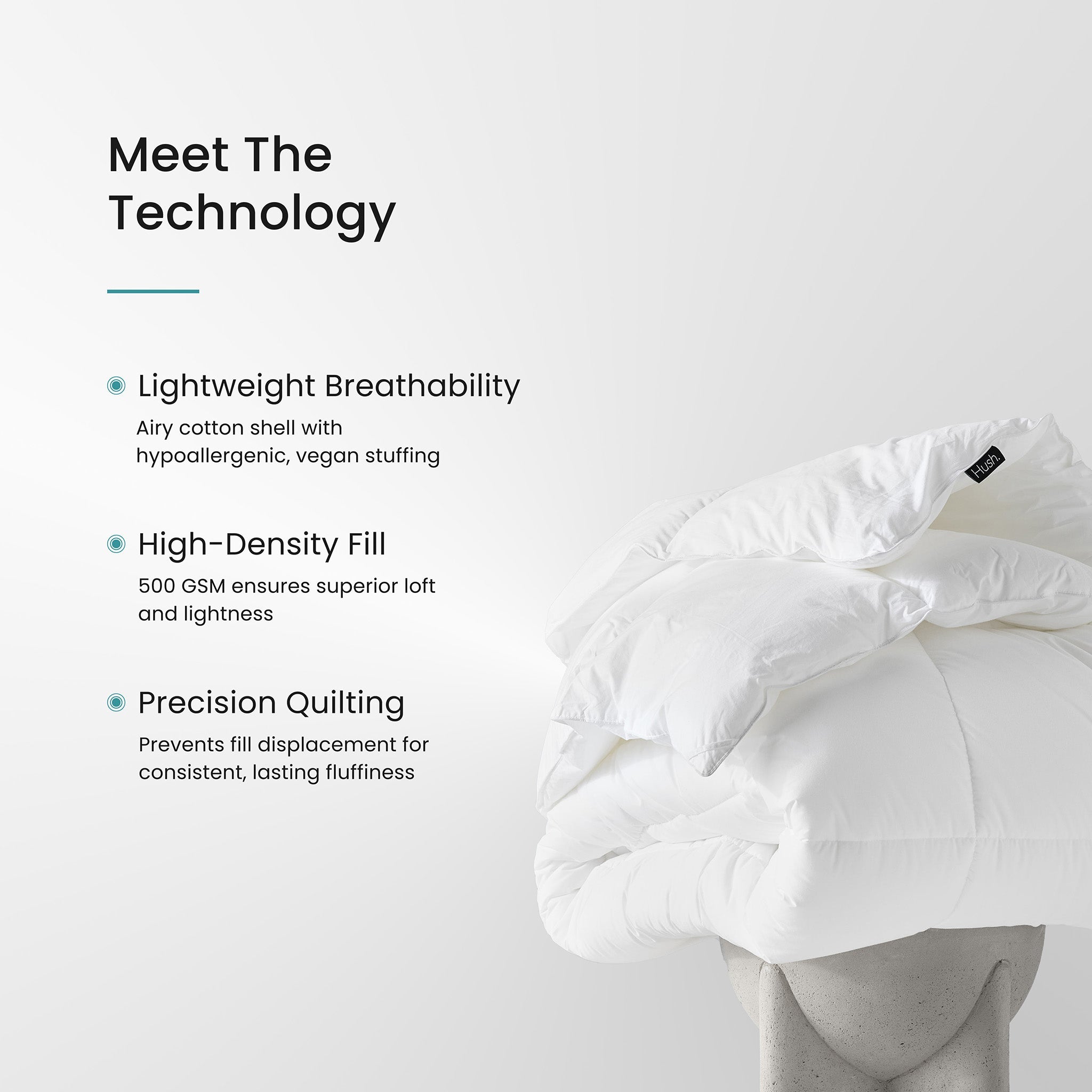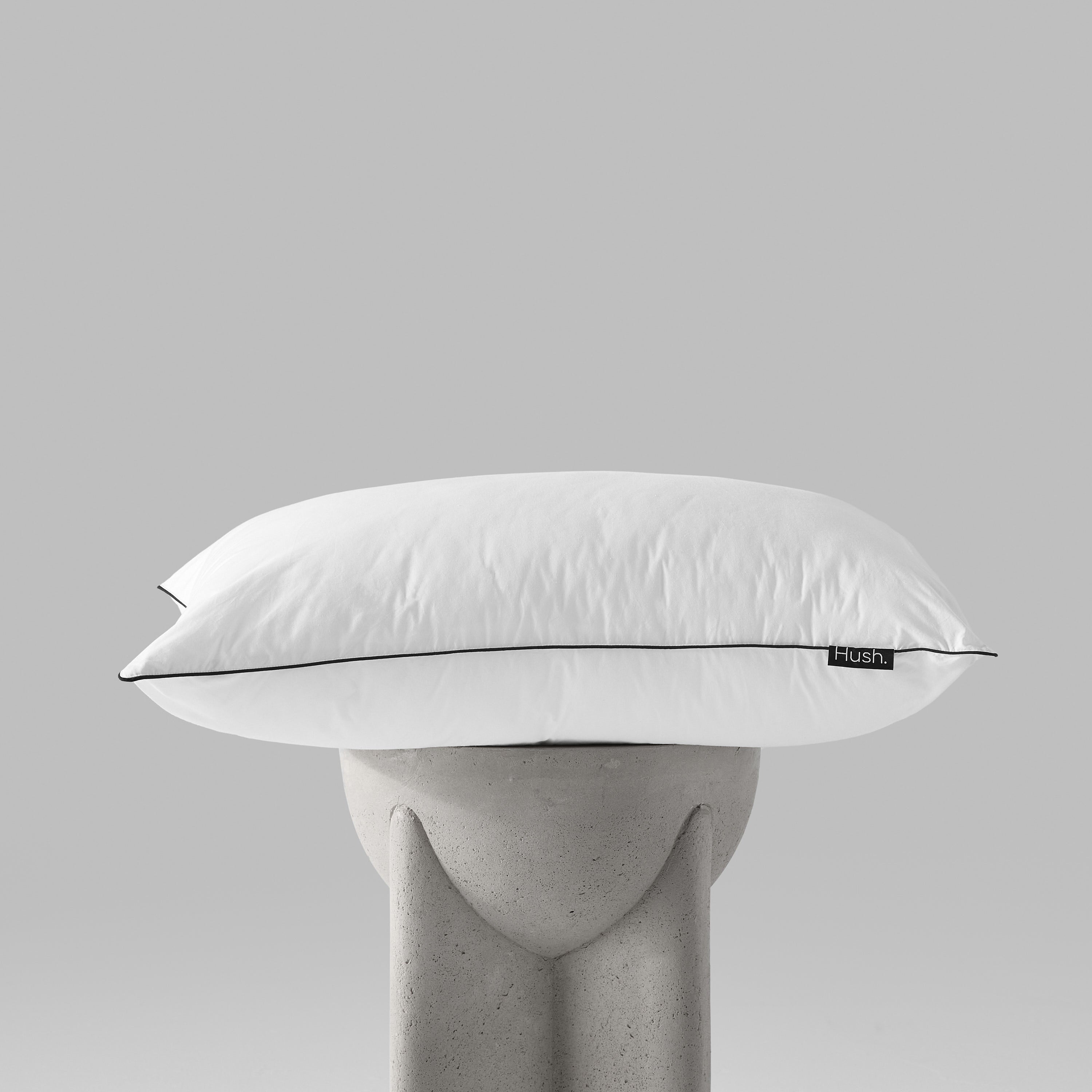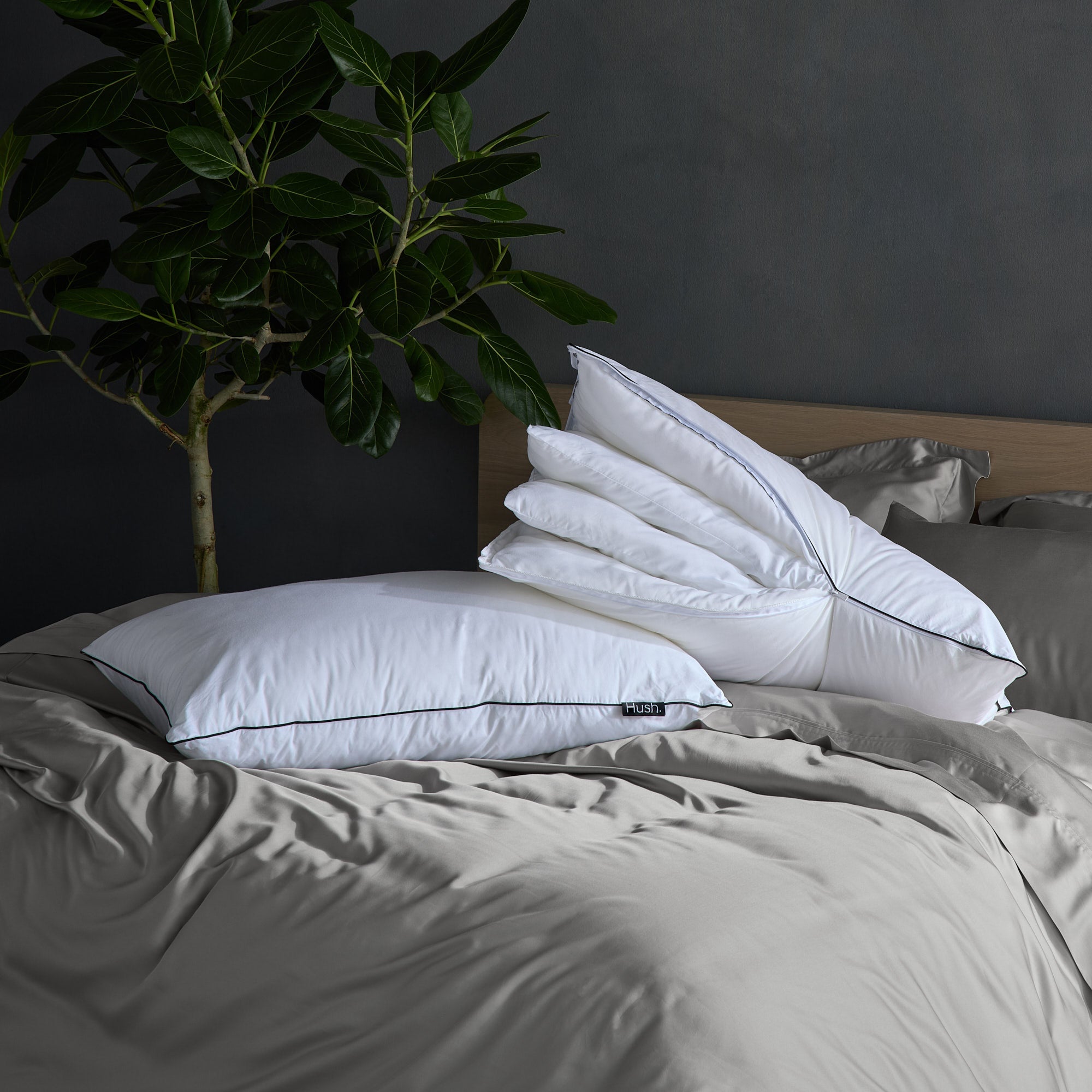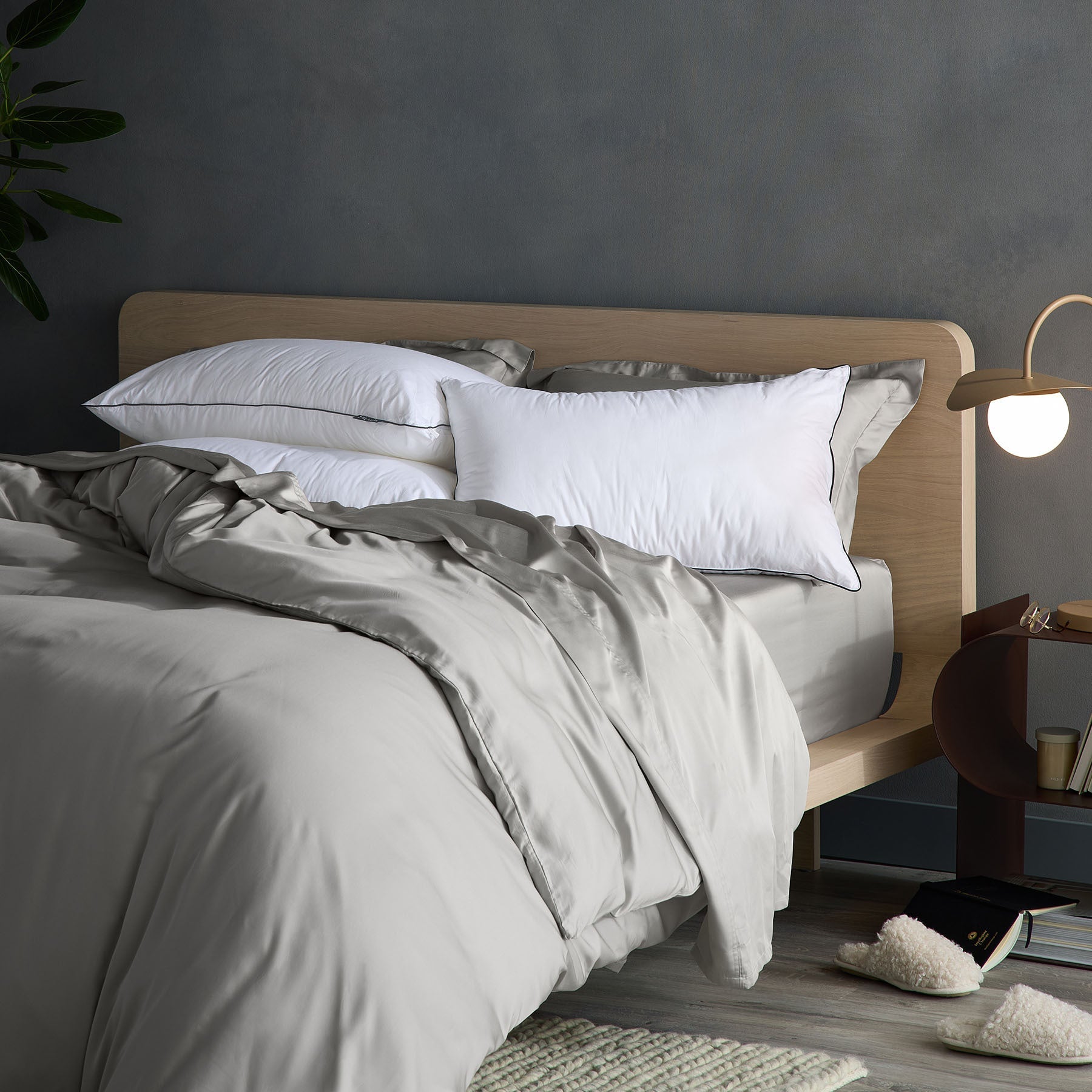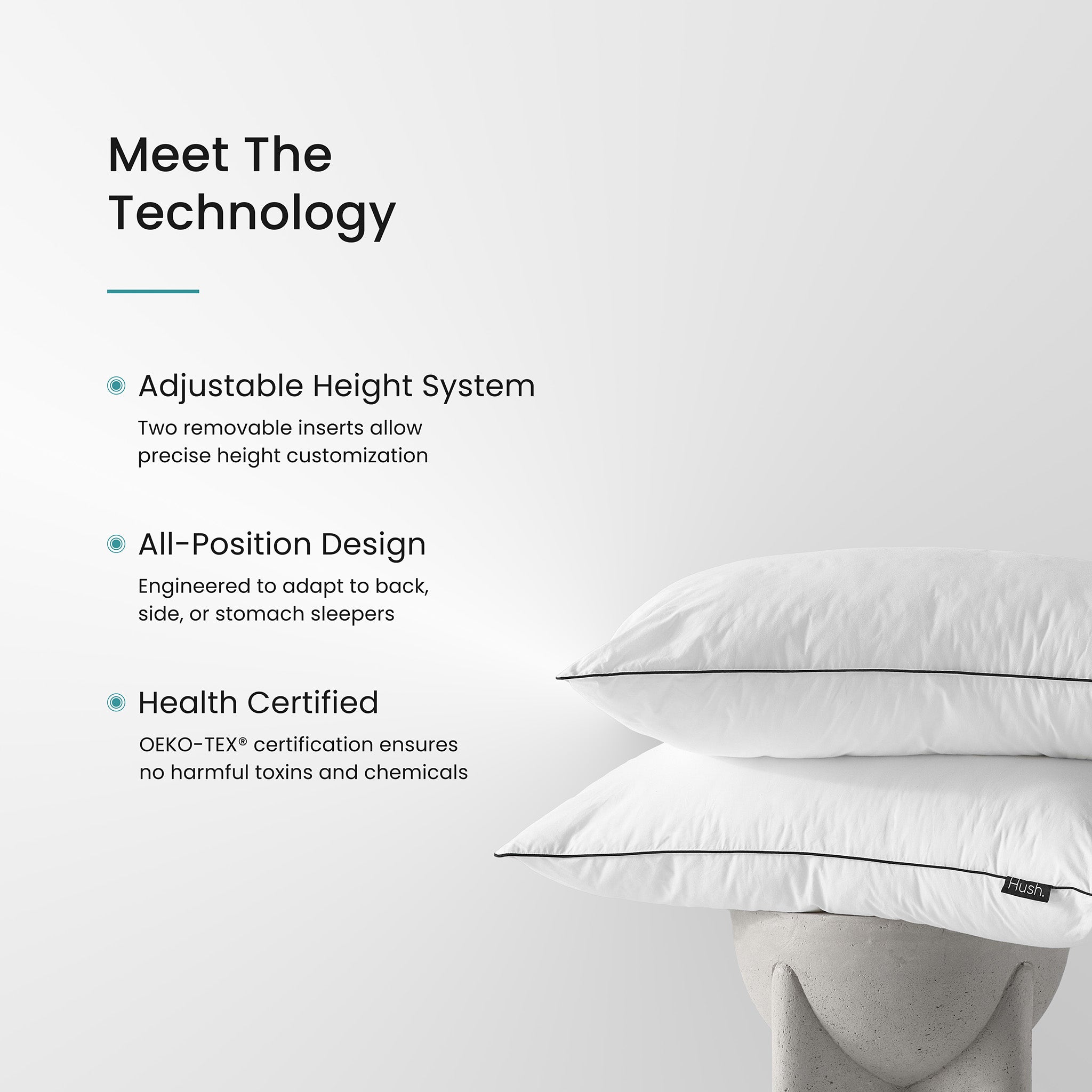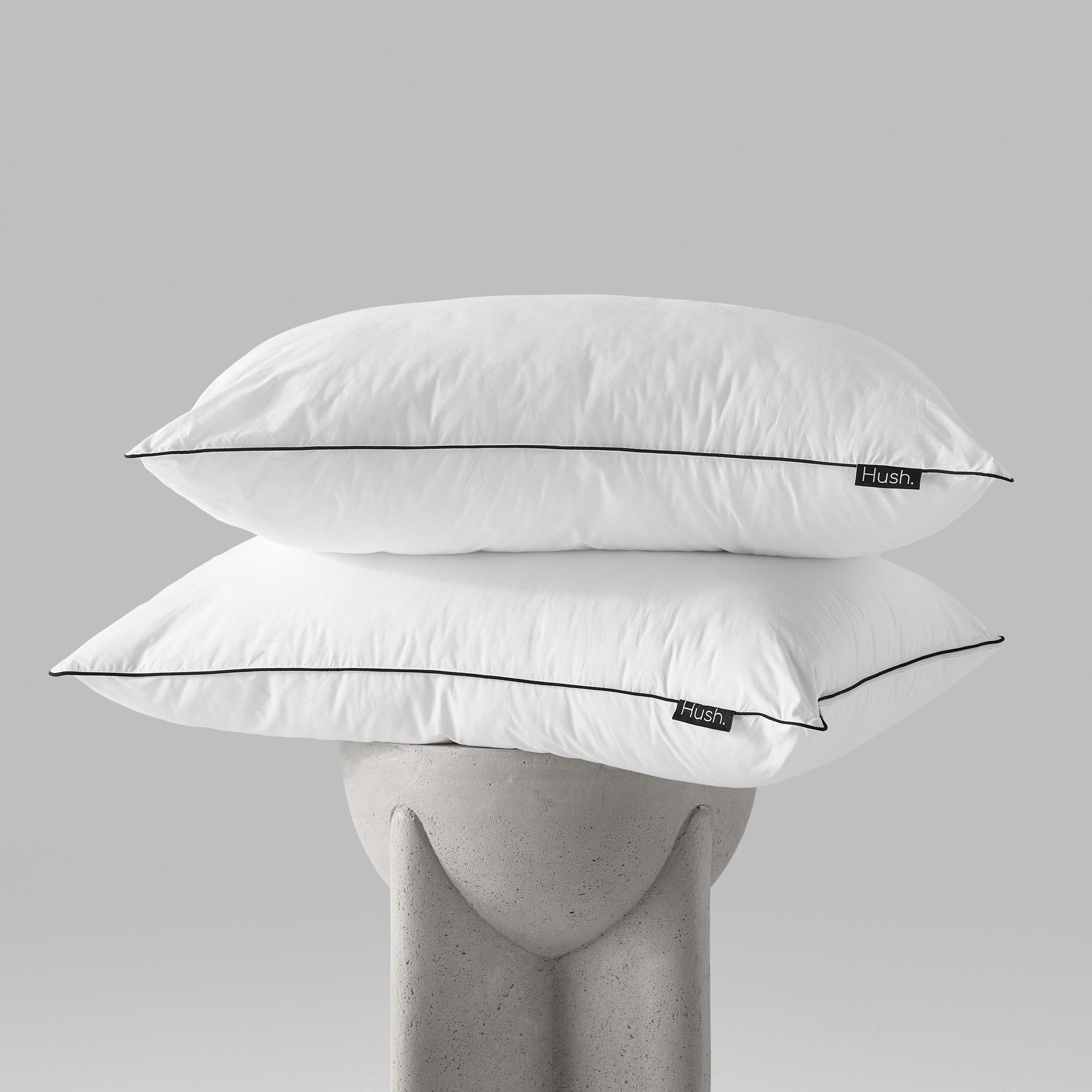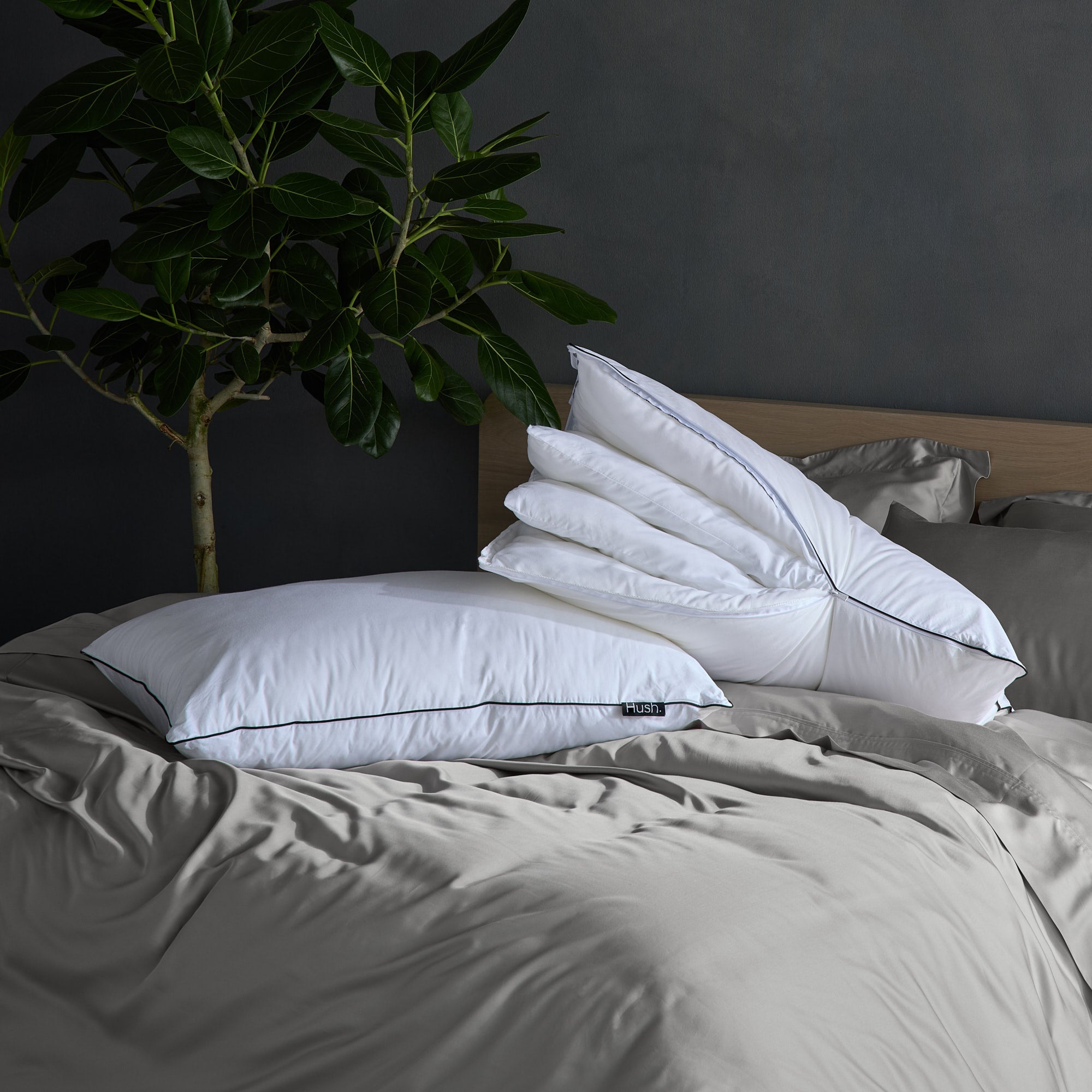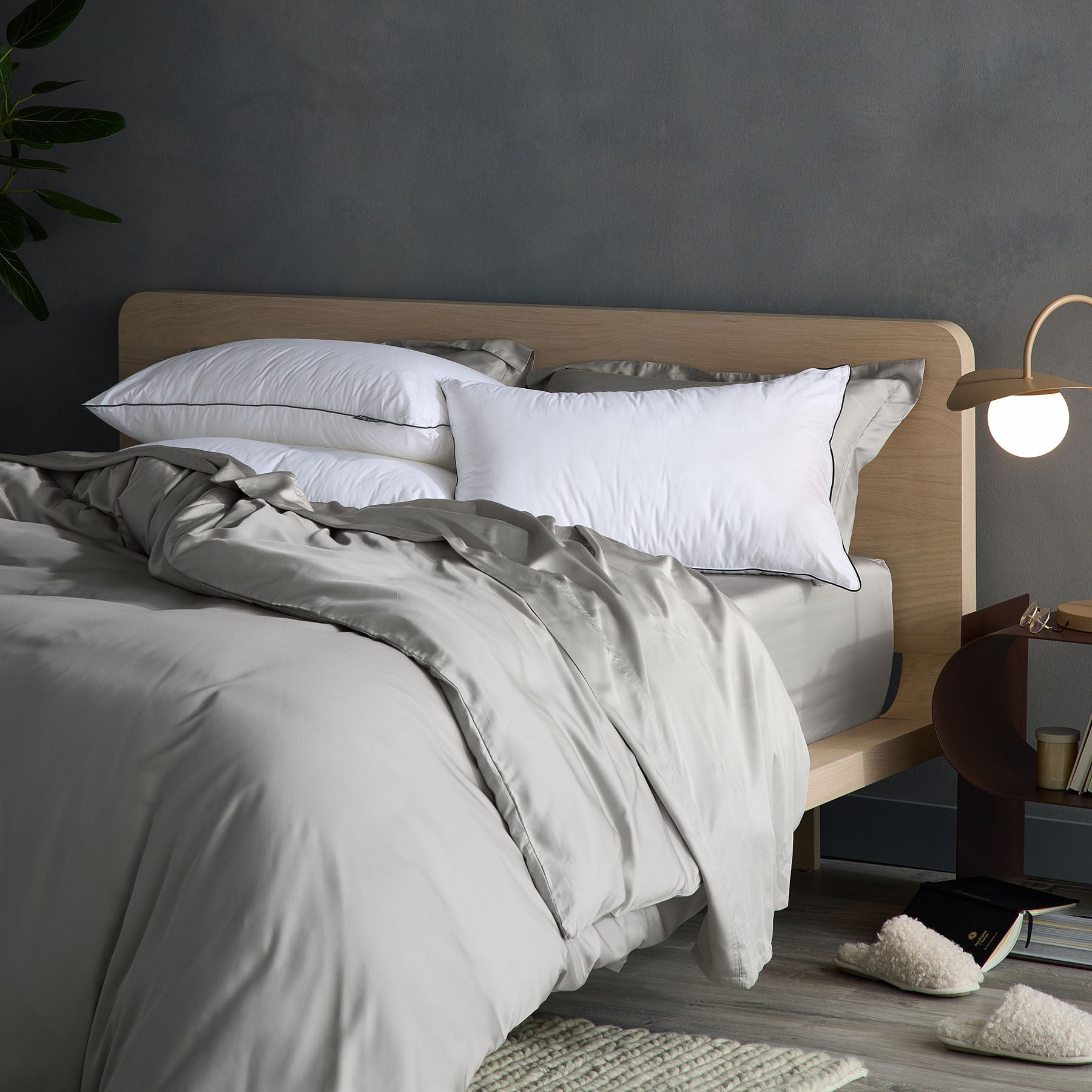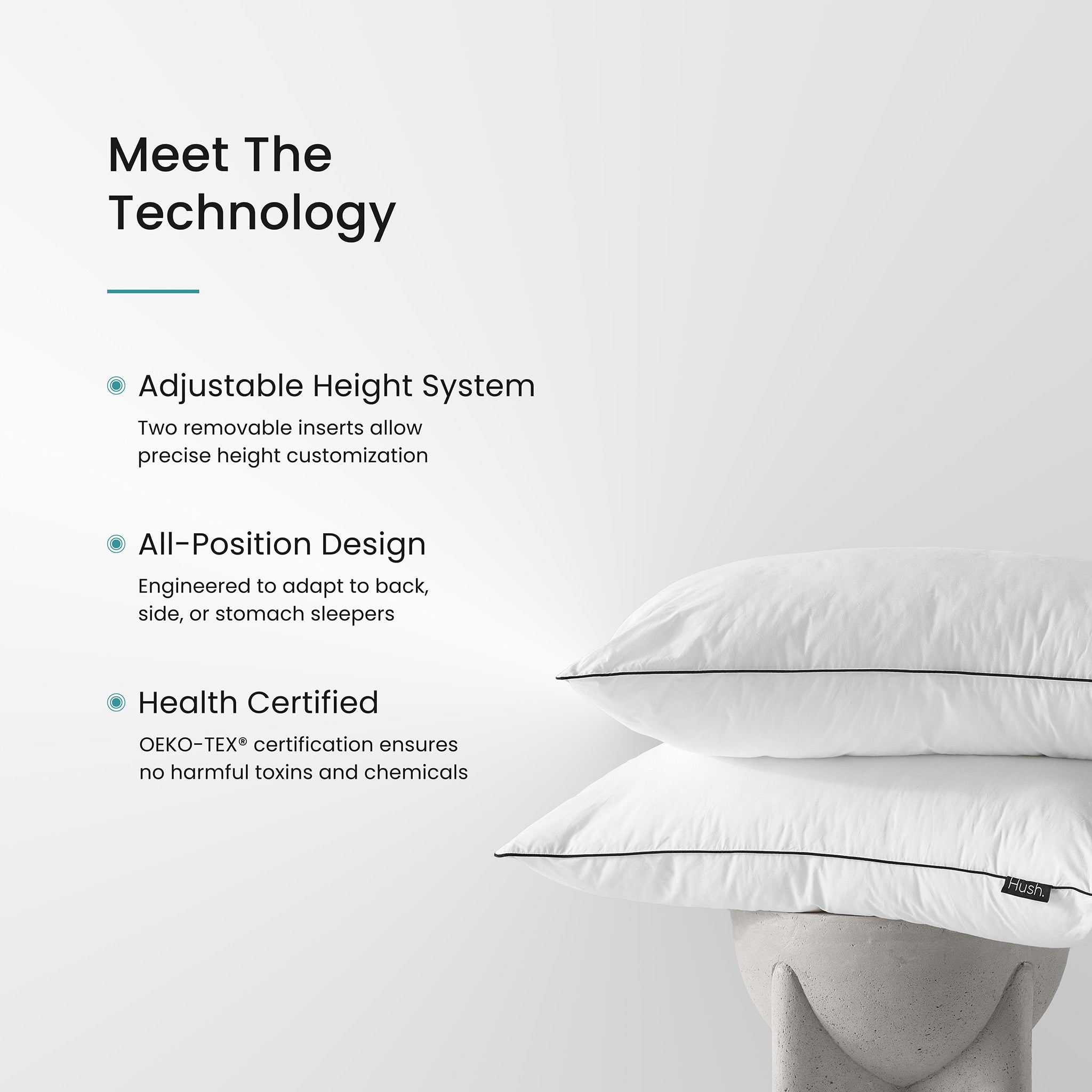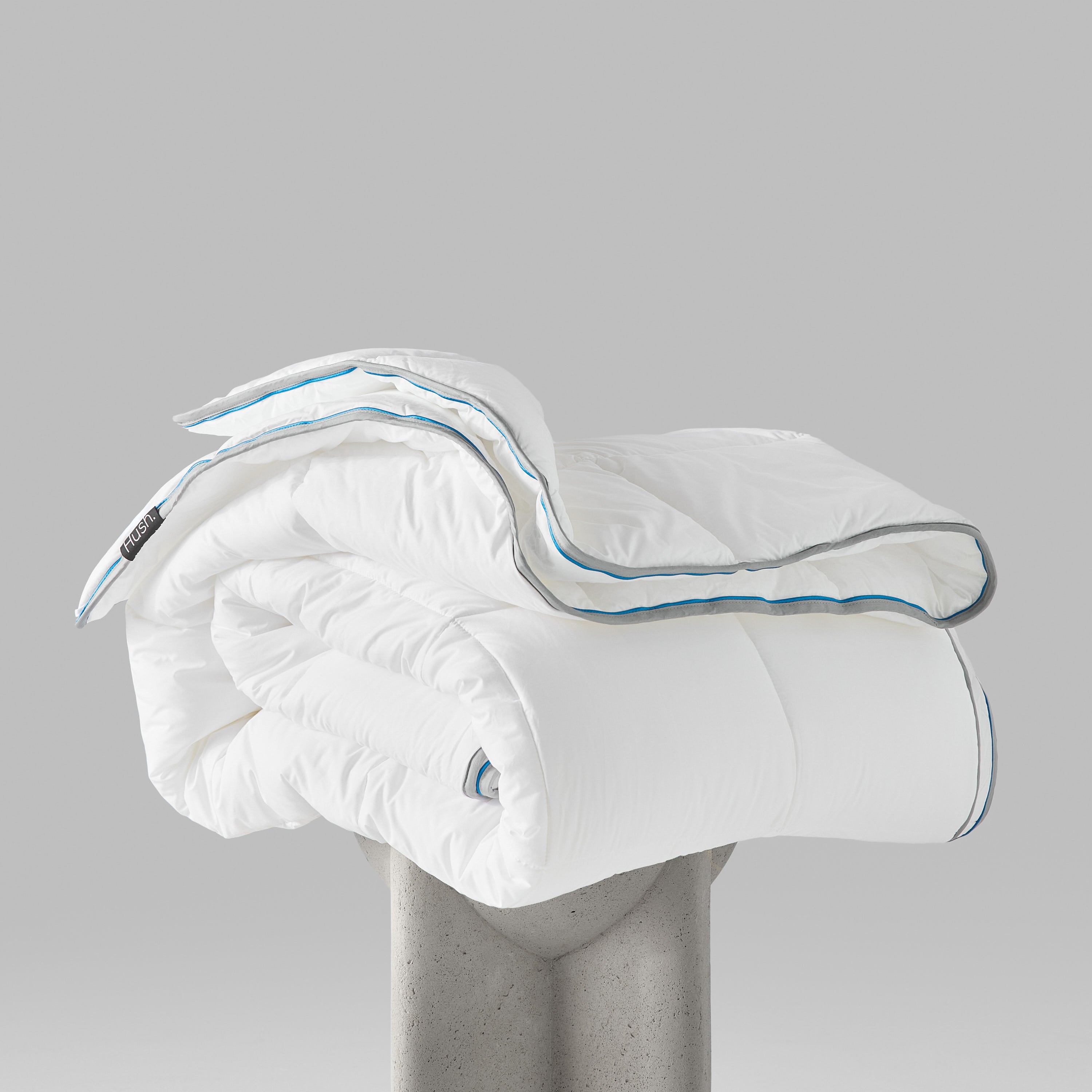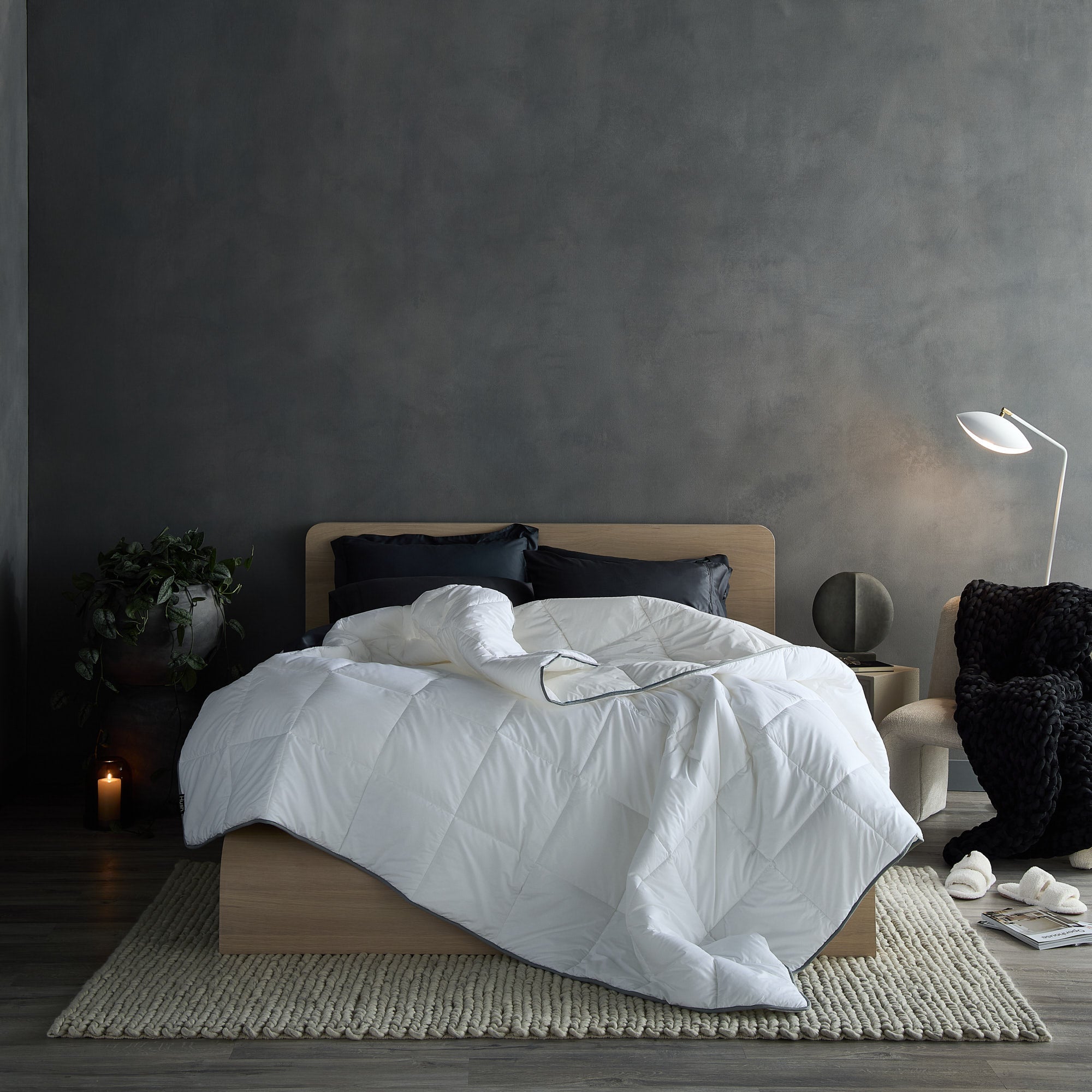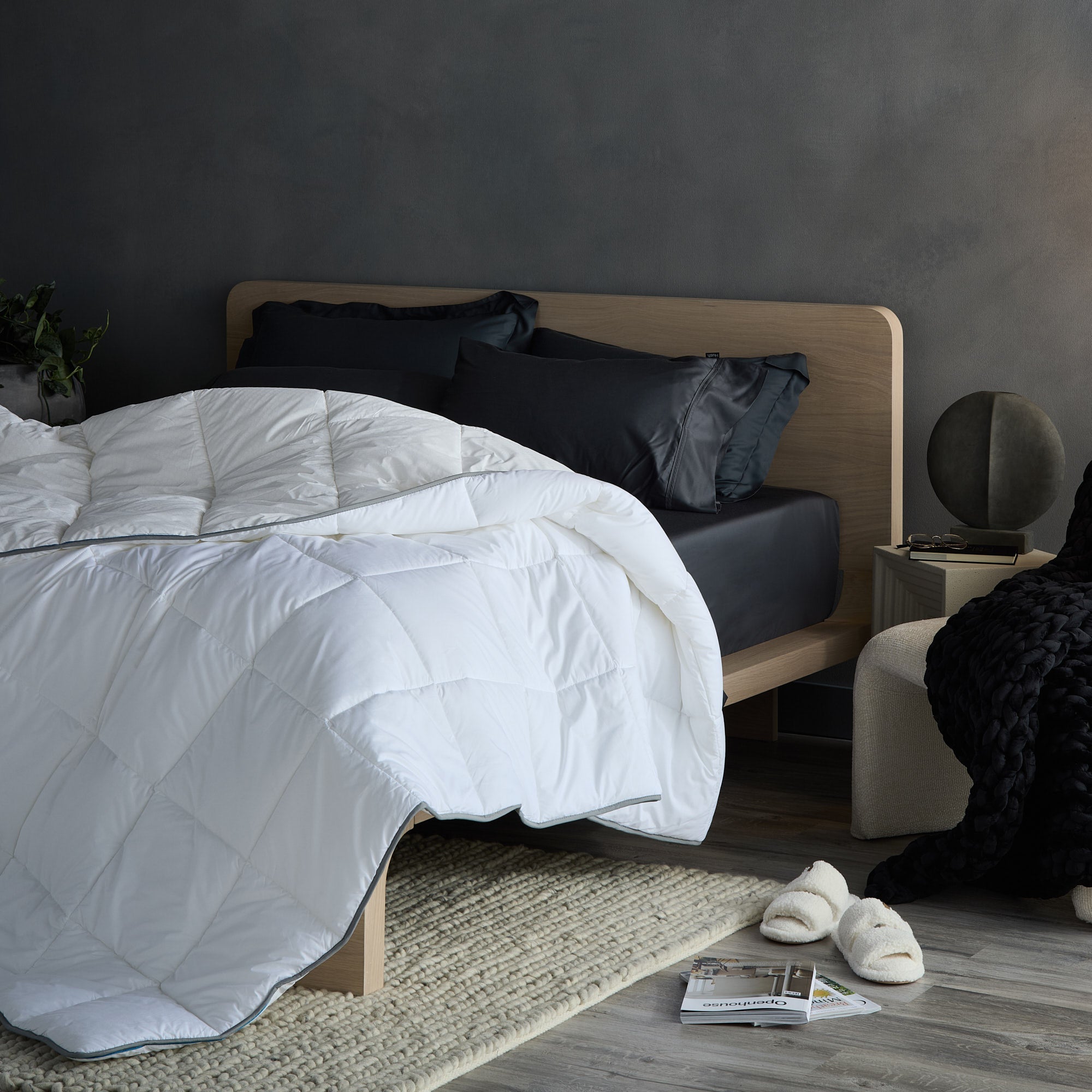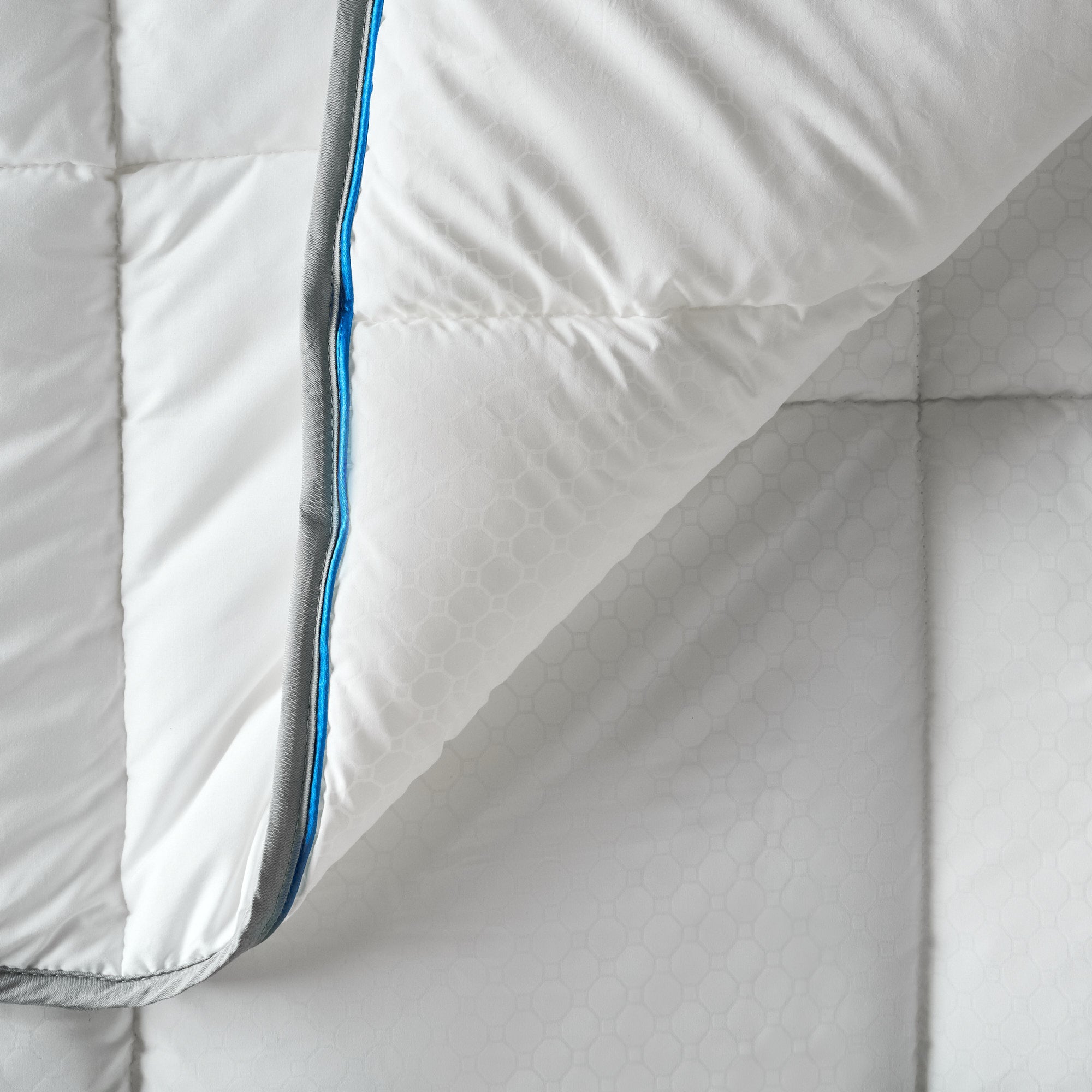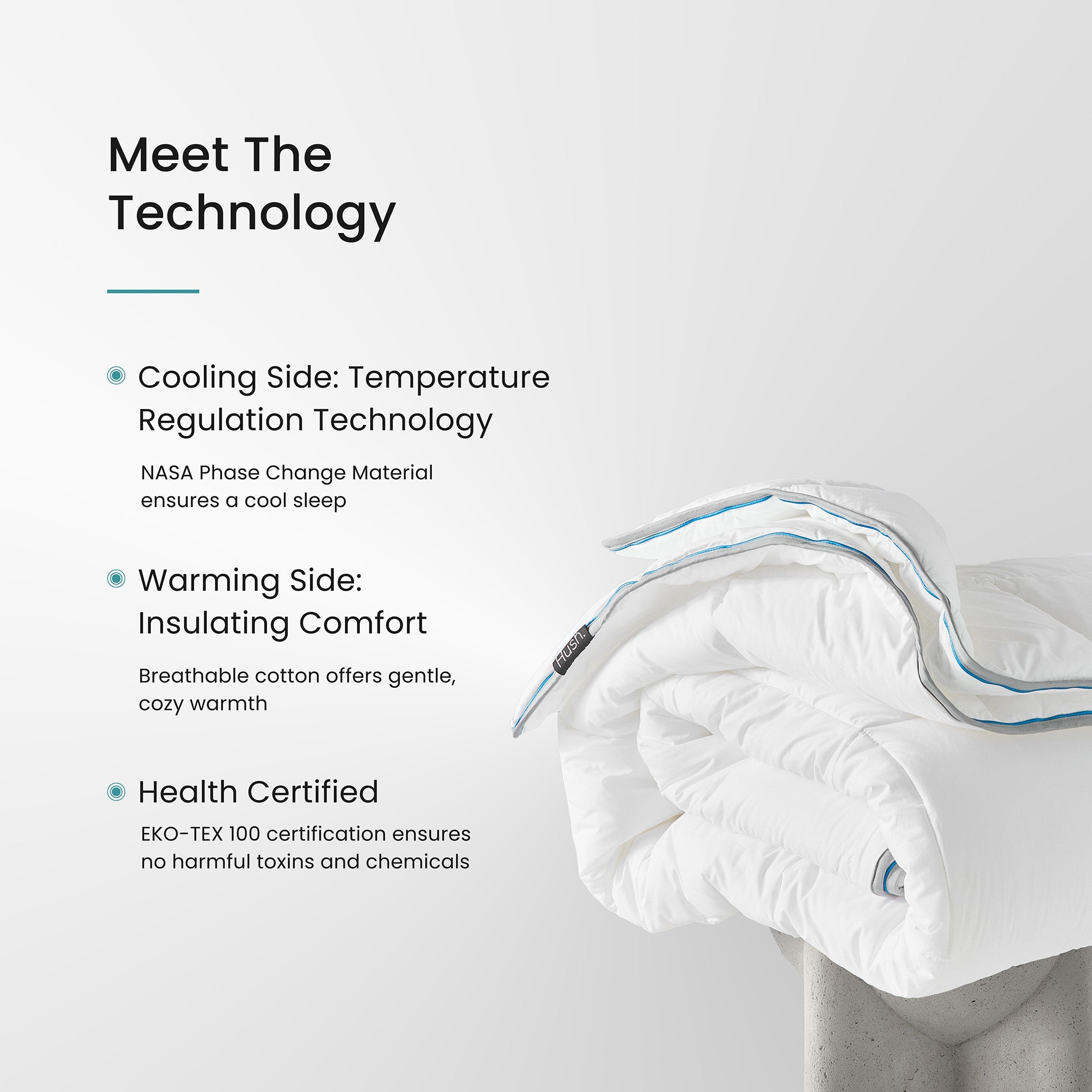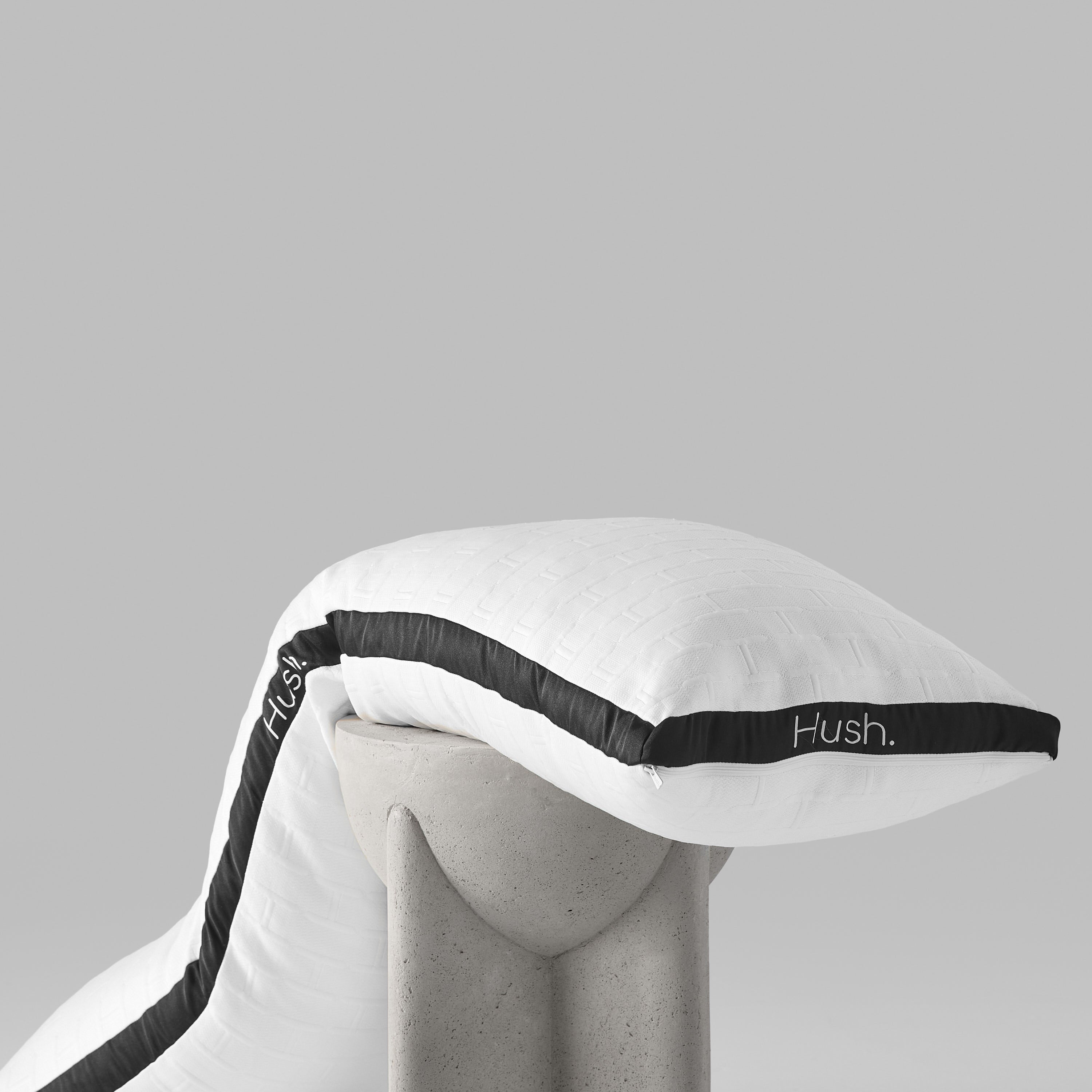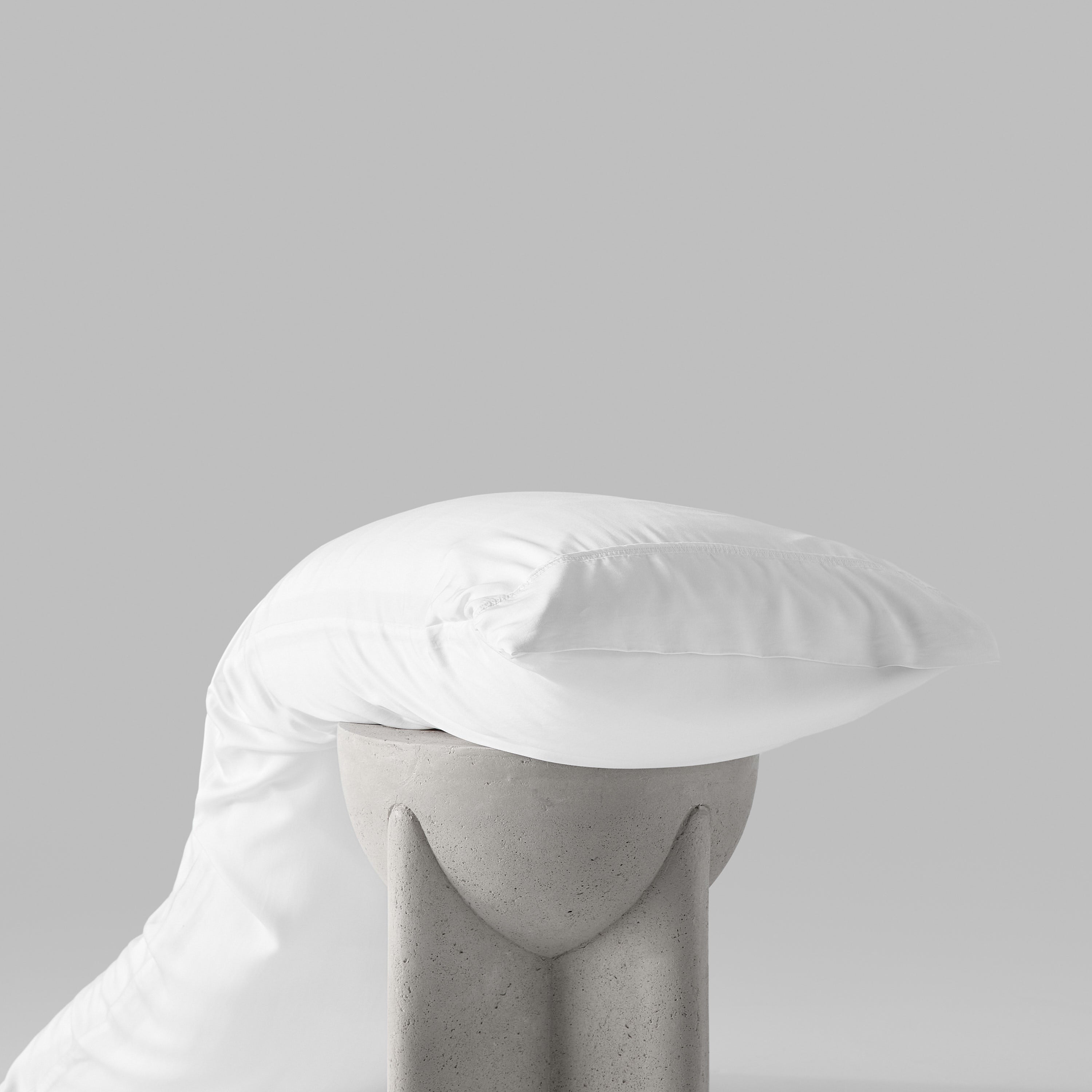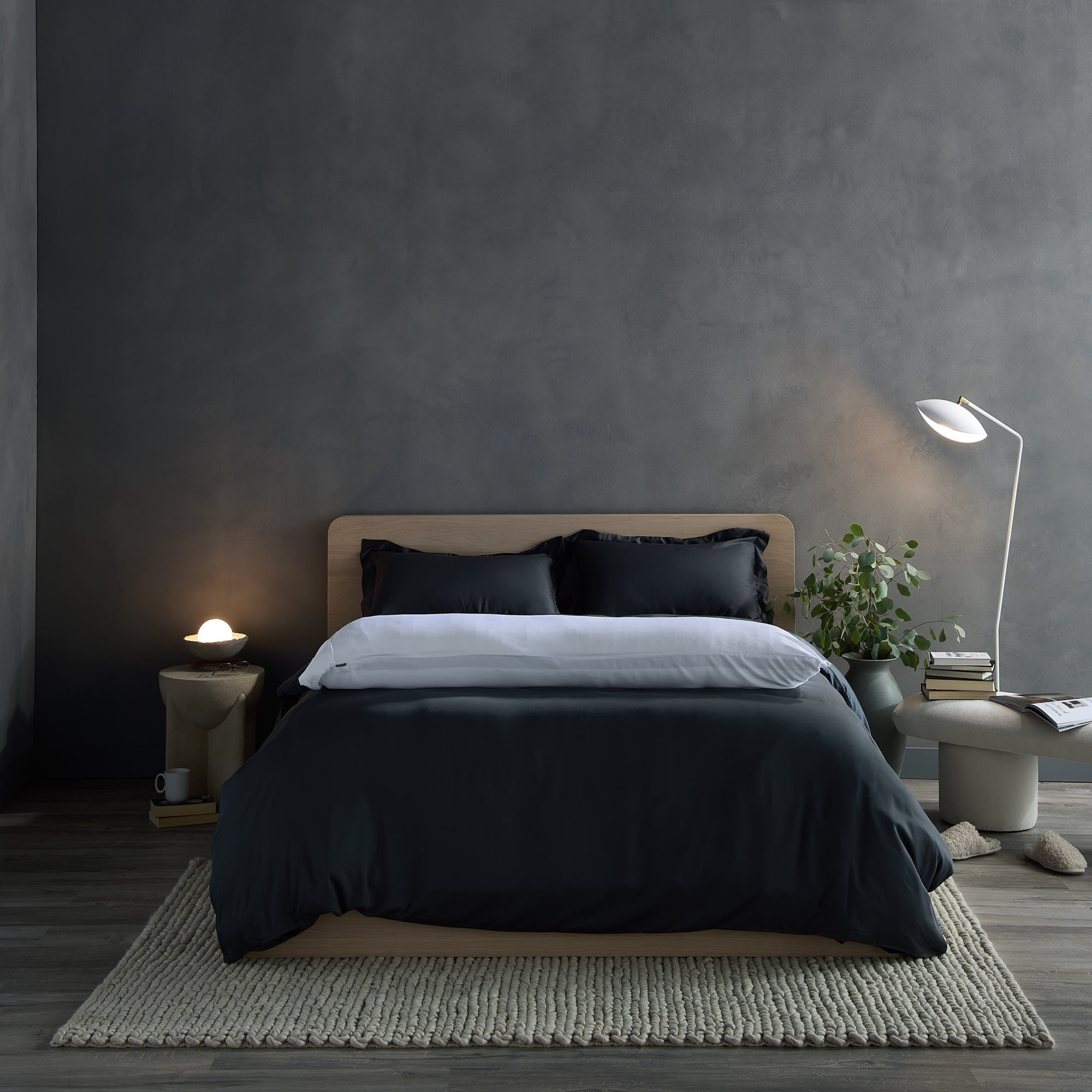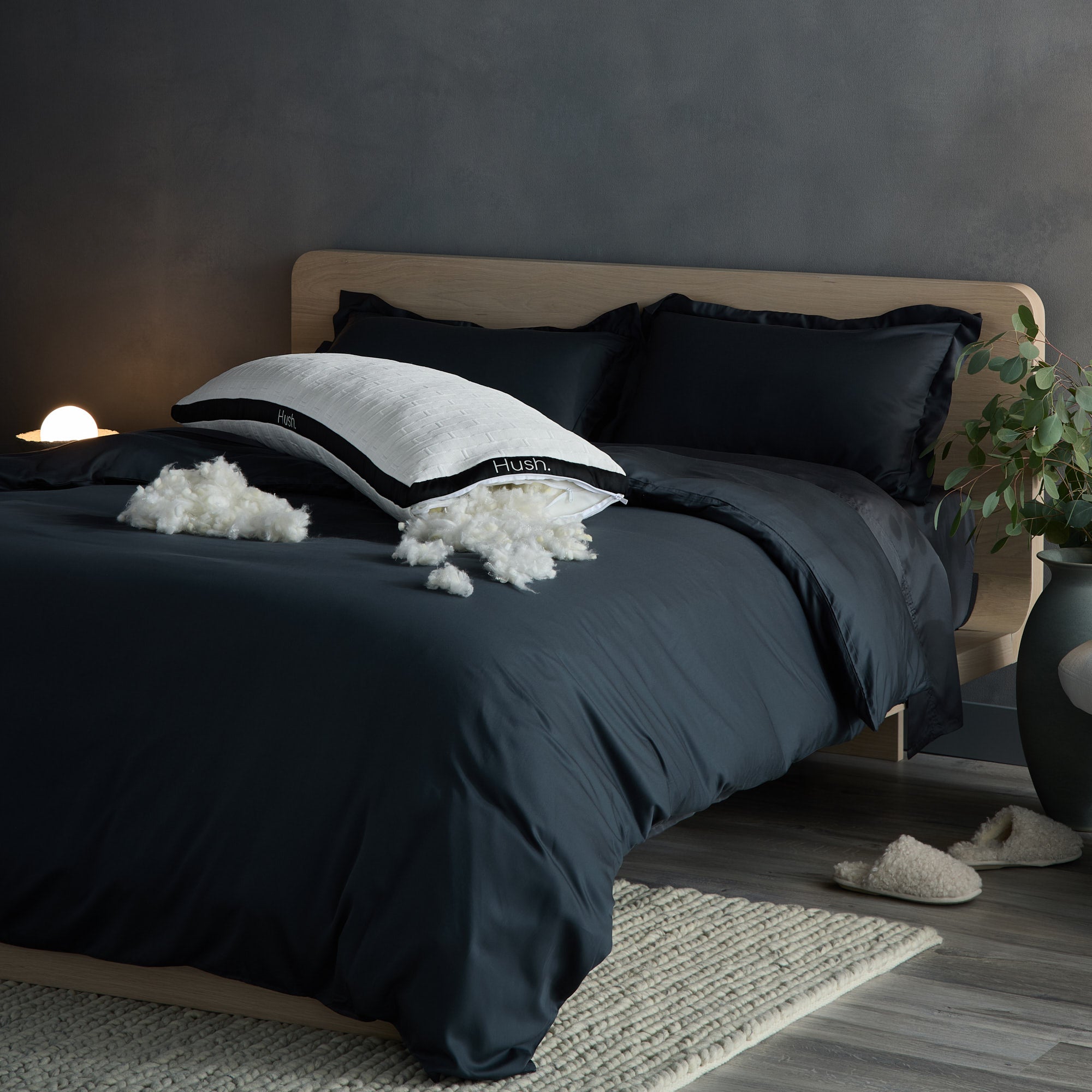If you or your loved one is suffering from Asperger’s, and you’re looking for a tool that you can use to relieve the symptoms associated with this condition, you’re in the right place.
In this blog post, we’ll walk you through how you can use weighted blankets to ease your stress and anxiety, and reduce the day-to-day challenges that you’re facing.
While no tool or treatment can completely eradicate Asperger’s, we’re hoping that you’ll be able to use weighted blankets to bring your condition under control, so that it doesn’t have such an overwhelming influence on your daily activities.
Read on to find out more!
What exactly is Asperger’s?
Before we talk about how you can use weighted blankets for Asperger’s, it’s worth spending some to discuss Asperger’s itself.
Now, Wikipedia defines the condition as “a developmental disorder that is characterized by significant difficulties in social interaction and nonverbal communication, along with restricted and repetitive patterns of behavior and interests.”
Alright, that’s straightforward enough.
What’s tricky about Asperger’s, though, is that it’s been classified and reclassified several times in the past few years.

Until 2013, Asperger’s was seen as a disorder that was separate and distinct from autism.
After that, it became part of an umbrella diagnosis, and it was within the autism spectrum.
As of today, scientists and medical professionals are divided on whether it’s part of autism, or whether it’s a standalone condition.
Pretty confusing, huh?
Now, it’s easy to understand why Asperger’s came to be grouped under autism a few years back. In a nutshell, individuals who are autistic and individuals who have Asperger’s display similar characteristics, including:
- Abnormal facial expressions
- Avoidance of eye contact
- Lack of interest in making friends
- Lack of social awareness / inappropriate social interaction
That said, researchers later realized that there are noticeable differences between autism and Asperger’s.

For instance, those with Asperger’s are less likely to have impairments in their language, and they can typically communicate more effectively than those with autism.
If you’re wondering if whether this difference (whether someone is autistic or whether they have Asperger’s) affects how they might benefit from using a weighted blanket, the answer is… nope!
Weighted blankets don’t just help those with autism and Asperger’s, they can even benefit:
- Patients with fibromyalgia
- Patients with ADHD
- Patients with PTSD
- Everyday folks who suffer from anxiety, insomnia, and other issues
However, if you’re able to understand the difference between Asperger’s and autism, and pinpoint which condition you or your loved one is leaning towards, this makes it easier for you to research on other techniques and methods you can use to alleviate your symptoms.
Alright, now that this is cleared up, let’s move on to talking about using a weighted blanket when you have Asperger’s!
Weighted Blanket Aspergers: What you need to know
If you’re part of the online community of folks with Asperger’s, you might have seen people gushing about weighted blankets on forums and blogs.
Case in point:
And here’s another example:
Now, you might be wondering… how do weighted blankets help people with Asperger’s? Are these really beneficial, or are they just creating some sort of placebo effect?
Well, interestingly enough, weighted blankets originate from squeeze machines, which are machines devised to help autism patients relieve stress and relax.
How the squeeze machine came about
Here’s the backstory: squeeze machines were invented by Dr Temple Grandin, who’s on the autism spectrum herself.

When Dr Grandin was visiting her aunt at her ranch, she realized that the cows who were getting vaccinated in an inoculation machine grew a lot calmer after they were gently squeezed by the machine.
This made Dr Grandin wonder -- would the same gentle pressure have the same effects on autistic individuals?
With this theory in mind, Dr Grandin created the squeeze machine. After several studies, the machine was proven to reduce anxiety and stress in both autistic individuals, and regular people without any medical conditions.
Now, it was great that the squeeze machine was effective, but there was just one problem… it was way too bulky, expensive and inaccessible.
That’s where weighted blankets come in.
Basically, weighted blankets are blankets that are weighed down by stuffers such as plastic poly pellets, glass beads, and steel beads.
These blankets give you all the benefits of squeeze machines, but they’re a LOT more cost-effective, and easier to get your hands on.
How do weighted blankets work?
To quickly recap: we’ve discussed how weighted blankets and squeeze machines originated, and how these are traditionally used to help folks with autism and Asperger’s.
Now, let’s discuss the science of it all. What happens when you use a weighted blanket? How does this help alleviate your symptoms?
Basically, the magic behind weighted blankets lies in Deep Pressure Therapy (DTP), also known as Deep Touch Pressure Therapy and Touch Therapy.

What is DTP? In a nutshell, it’s a form of firm tactile sensory input that exerts a light, soothing pressure on you.
If you’ve ever snuggled under a thick, heavy comfortable and immediately felt comforted and at peace, that’s basically DTP.
As to how DTP affects your body, it actually reduces the amount of cortisol (the stress hormone) and boosts the amount of serotonin (the chemical that helps you wake up feeling refreshed) in your body.
That’s why many autism and Asperger’s experts recommend using DTP as a coping mechanism and a method of alleviating autism and Asperger’s symptoms.
As how Harvard researcher Emily Kuehn puts it, touch therapy can relieve common physical and mental ailments associated with the disorder, including muscle spasms and social anxiety.

She goes on to note that touch therapy also has beneficial effects on the linguistic and social abilities of ASD patients, and can boost the effects of conventional therapies when used together.
Weighted Blanket Asperger’s: Using a weighted blanket as an adult
Adults with Asperger’s often grapple with loneliness, anxiety, and even depression. These individuals may be getting insufficient sleep, which worsens the situation.
How does a weighted blanket help here?
Other than helping you to reduce anxiety and relieve stress, a weighted blanket can also help you fall asleep faster, and increase your quality of sleep.

In fact, there’s a 2015 study from the Journal of Sleep Medicine & Disorders that shows that participants who used a weighted blanket slept for longer periods of time and felt more refreshed after waking up.
Weighted Blanket Asperger’s: Weighted blankets for children
If you’re researching on behalf of a child who has Asperger’s, a weighted blanket for kids might be beneficial in helping them alleviate their symptoms as well.
The theory of it is basically the same as what we’ve just discussed: the weighted blanket reduces stress and tension, making your child more relaxed and open to communication.
Now, what if your child has a Sensory Processing Disorder (SPD), and they’re over or under sensitive to everyday stimuli?
Assuming you’re dealing with a case of under sensitivity, this means that your child will likely crave extra sensory input. Bearing this in mind, they’ll probably enjoy the gentle pressure of a weighted blanket.
If your child is over sensitive, however, then they may or may not like a weighted blanket. It’s still possible to introduce them to a weighted blanket, but be careful to do this in a controlled, measured way, so that you don’t overwhelm your child.
Here, make sure to purchase a weighted blanket that’s made specifically for children, instead of getting a weighted blanket for adults.
Want to experience the magic of a weighted blanket?
If you’re living with Asperger’s, chances are that your simple, day-to-day activities generate a significant amount of stress on you.
You might find it hard to sustain eye contact (or on the flip side, you might be making too much eye contact).
You probably find it difficult to recognize humor, irony, and sarcasm, and distinguishing between a joke and a serious statement might be challenging for you.
Communicating your feelings (or interpreting other people’s gestures and feelings) might be tough as well.
Unfortunately, these are things that you’ll have to learn to live with — there’s no magic pill that you can swallow that will magically make you attuned to your friends and family’s feeling and emotions.

On the bright side, however, you can learn to practice self-care so that you aren’t as bogged down and overwhelmed by these challenges that life presents.
One way of doing this is to use a weighted blanket to reduce your feelings of stress and anxiety, and get a good night’s sleep.
If you’re keen on experiencing the magic of a weighted blanket for yourself, try our Hush Blanket, which has earned plenty of rave reviews from customers.
We offer a 100 Night Guarantee with all our blankets, so this means that you can order our blanket and try it risk-free.
We’re confident that you’ll love your blanket (and that you’ll never look back!), but on the off chance that you don’t like it, just send it back within 100 days and you’ll get a full refund.
What are you waiting for? Purchase your Hush Blanket now, and watch as your insomnia and stress evaporate into thin air!





